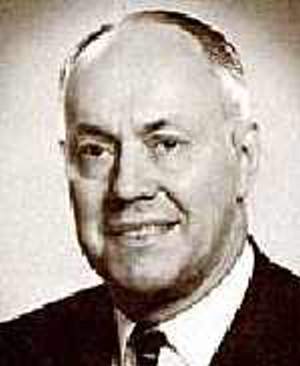Carl W. Buehner’s famous quote “They may forget what you said, but they will never forget how you made them feel,” is more than just a pleasant proverb. It was his way a life, as evidenced by the vast influence he had serving and ministering to others on a personal level as well as through his Church leadership.
Carl William Buehner was born on December 27, 1898, in Stuttgart, Germany, but immigrated to Salt Lake City, Utah, as a child with his family. Buehner studied at the Illinois Institute of Technology and went on to become a successful businessman, involved in the operations of many family-owned businesses. He was also actively involved in politics; in the 1968 election, he was the Republican candidate for the governor of Utah.
Not only was Buehner a public servant, but he was also a dedicated servant of the Lord. He served as a bishop, a stake president, a member of the Church Welfare Committee, and a Regional Representative of the Quorum of the Twelve. In 1952, he was called to be a second counselor in the Presiding Bishopric under Presiding Bishop Joseph L. Wirthlin until 1961.
His Church service continued as he was called twice to be a second assistant in the general superintendency of the Young Men’s Mutual Improvement Association—once in 1961, following his release from the Presiding Bishopric, and again in 1967. He continued to influence the lives of many more boys and young men when he was appointed to be president of the Great Salt Lake Council of Boy Scouts of America. For his work with the Boy Scouts and other Church youth he was awarded the Silver Beaver Award and named an Honorary Master M-Man.
Despite his busy schedule, Buehner still made time for his family. He and his wife, Lucille, were the parents of four children. When Carl passed away in Salt Lake City on November 11, 1974, the Church honored him with this statement: “Brother Buehner distinguished himself as a successful businessman, community builder, and, most importantly, as a devoted husband and father.”

